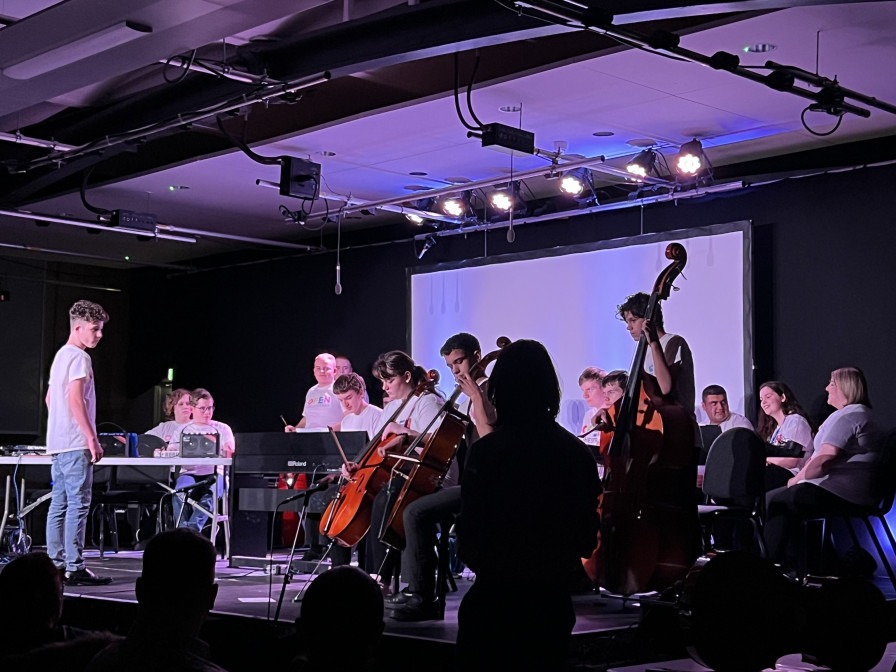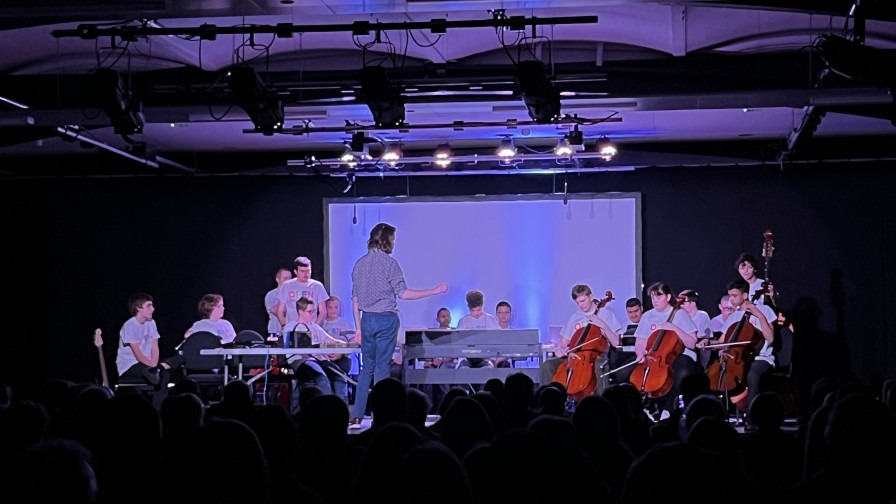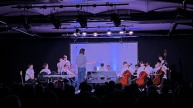Inclusive ensembles: the ingredients for success

I've been reflecting on our Middlesbrough Open Orchestra project a lot this week, as they get busier and busier with events and performances, and with each one, they continue to grow in confidence, proficiency and have a sense of 'family' that comes with shared experiences of making music together.
I have been reflecting on what makes this project more of a success within our programme than others, and how to apply the ingredients to other projects and activities.
1)Partnership working
It seems an obvious one, but it really is about finding the right partners to work with. Often we have found that we believe we have an effective partnership, but we find that we are sometimes still viewed as 'providing a music service'. It is essential from the outset to ensure that the intended outcomes are the same on either side, for example, benefits for the young people rather than meeting curriculum or funding objectives or any other agenda. The other key element of an effective partnership is a person who leads on the partnership within the organisation, as well as having whole organisation backing. With our orchestra partners, the 2 schools we work with have extremely pro active music teachers who lead on the project itself, an successfully advocate for the orchestra within their organisation. The benefits then filter through to the wider school. It isn't a project that is part of the music timetable or unknown to some of the staff, the whole school are behind the orchestra and this is demonstrated by the various members of staff that attend to support at rehearsals and get involved.
2) The right music leader. For the young people involved in our orchestra, they needed someone who could introduce and support young people on a range of instruments, take a community music facilitation approach as well as a music teacher approach, is competent in music technology, can arrange music to suit various instrumentations, is flexible, works inclusively and who is calm but assertive, inspiring and innovative. We were lucky enough to find this person and lucy enough that they have been committed enough to the project that they have been consistent for 3 years of the orchestra existing. We are aware how lucky we are to have them!
3) Venue / space
Often with music activities, finding the right space is a challenge. It needs to be the right size, temperature, layout, accessible, welcoming. The magic formula here is having a dedicated space where the young people feel is theirs and feel ownership. I think the members of our orchestra feel that they own Middlesbrough Town Hall! They say hello to the venue staff as they come in. The venue staff often ask if they can work on the days that the orchestra are in as it livens up their day to hear their music filtering through the building. Again an example of the wider impact of the programme.
4) Resources / instruments
In our orchestra, there are a range of instruments along with technology options. We have piano / keyboard, physical drums and drum pads, cellos, a double bass, xylophones, guitars, saxophones, synthesiers and of course the clarion. The young people have the opportunity to play multiple instruments and often swap instruments for different pieces. There are some who perfer to stay on the same one. It is their choice.
5) Repertoire / composition
The repertoire is chosen by the young people. They will often turn up to rehearsals and start playing a melody on the keyboard or they suggest a piece they have heard recently that they like, and things go from there. The group decide on which pieces to work on, which they like and dont like. Often the keyboard players will create their own compositions which are the starting point of a full orchestr piece. The leader will work with the other members of the orchestra to support them to come up with a part that they add to the melody and the piece builds from there.
6) Performance opportunities
Without something to work towards the group's enthusiasm and motivation may potentially have waned, although we will never know! As the supporting organisation, we have tried to ensure that they have something to work towards, and opportunities to perform. Again this requires the support of the schools, staff and parents/carers in order to make these things happen. It's not all rosey - we certainly face challenges around parental support as parents / carers often have other siblings, and due to the additonal needs of the musicians the orchestra may not be a priority for some. However we tackle this by arranging performances within the school day where possible.
Above all, we simply have wonderful young people to work with - which I know is the case for anyone reading this too. Our young people continue to inspire me in my work every day, and I feel very lucky to be part of their musical journey.
Talking of journeys....we have a long one next week as we take the orchestra to the Music Education Expo in London to perform on Thursday. Say hello if you see us there!
Rebecca, Musinc Manager.



